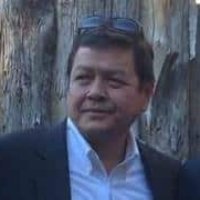Nicolaus Criminal Lawyer, California
Sponsored Law Firm
-
 x
x

Click For More Info:
-
Law Offices of Faith Hashemi
980 9th Street Sacramento, CA 95814» view mapEstate Law Legal Expertise. Client Connections.
Faith's experience, negotiation skills, and passion offer unparalleled service for her clients' cases. Connect with her for a full-service legal experience, committed to success.
800-839-9850
Douglas Randall Ensminger
✓ VERIFIEDD. Randall Ensminger been practicing civil and criminal law for over 35 years and found that our clients truly appreciate the time and effort we put i... (more)
Richard Thomas Dudek
✓ VERIFIEDRichard Dudek knows the Sacramento courts, procedures and prosecutors. Our highly skilled defense team includes licensed private investigators who use... (more)
Faith Hashemi
✓ VERIFIEDFaith's experience, negotiation skills, and passion offer unparalleled service for her clients' cases. Connect with her for a full-service legal exper... (more)
Matthew Nicholas Becker
✓ VERIFIEDSome legal matters deserve to be looked at from the professional perspective of a lawyer. The Becker Law Practice is familiar with laws that impact th... (more)
Jelena Tiemann
✓ VERIFIEDJelena Tiemann prides herself on being warm and easy to talk to. She strongly believes in getting to know her clients and all the issues they may be f... (more)
 Faith Hashemi Sacramento, CA
Faith Hashemi Sacramento, CA Practice AreasExpertise
Practice AreasExpertise





